Phonics Skills Normal Vowels and Consonants Worksheets for Ages 6-9
8 filtered results
-
From - To
Unlock your child's reading potential with our engaging Phonics Skills Worksheets, specifically designed for ages 6-9. Focusing on normal vowels and consonants, these worksheets help young learners master essential phonics skills through fun and interactive exercises. Each worksheet is tailored to build recognition and understanding of letters, enhancing their reading and writing abilities. With colorful illustrations and age-appropriate activities, children will enjoy practicing phonics while developing confidence in their language skills. Perfect for home or classroom use, our resources make learning vowels and consonants an enjoyable experience. Explore our collection today to support your child's early literacy development!
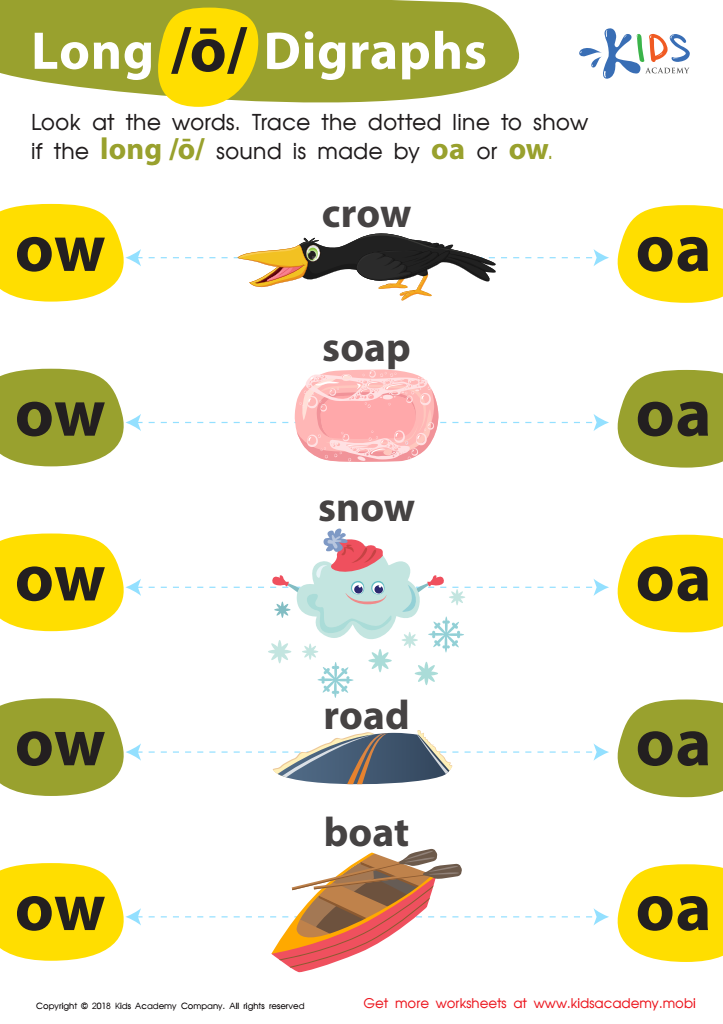

Reading: Long O Digraphs Worksheet


Short Vowels /e/, /i/, and /u/ Worksheet
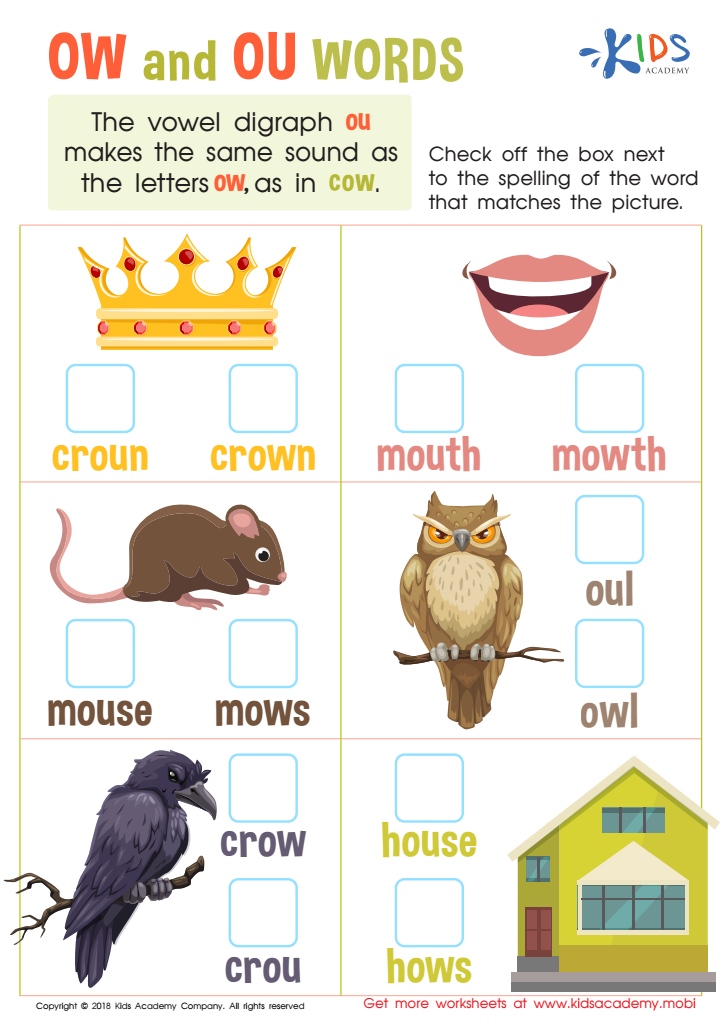

Reading: OW and OU Words Worksheet
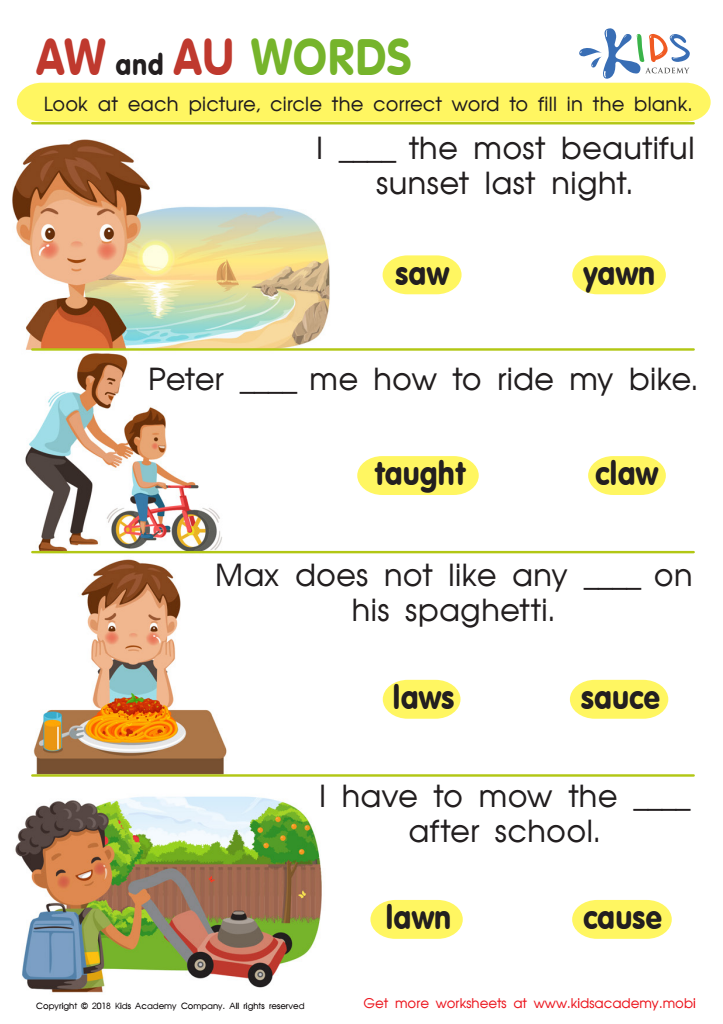

Reading: AW and AU Words Worksheet
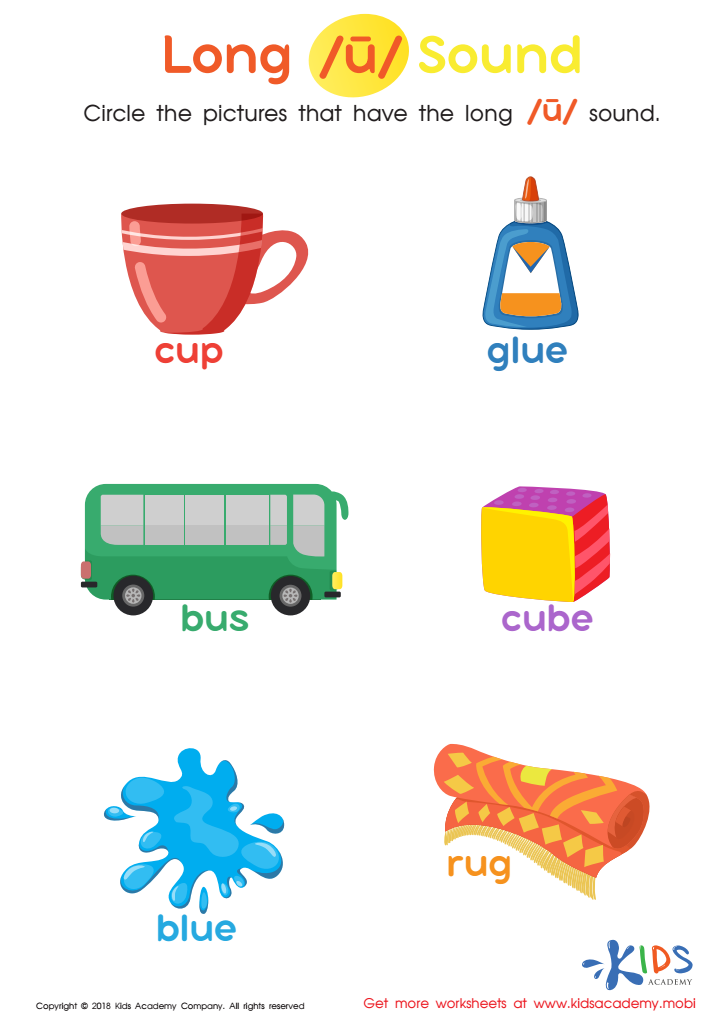

Long «u» Sound Worksheet
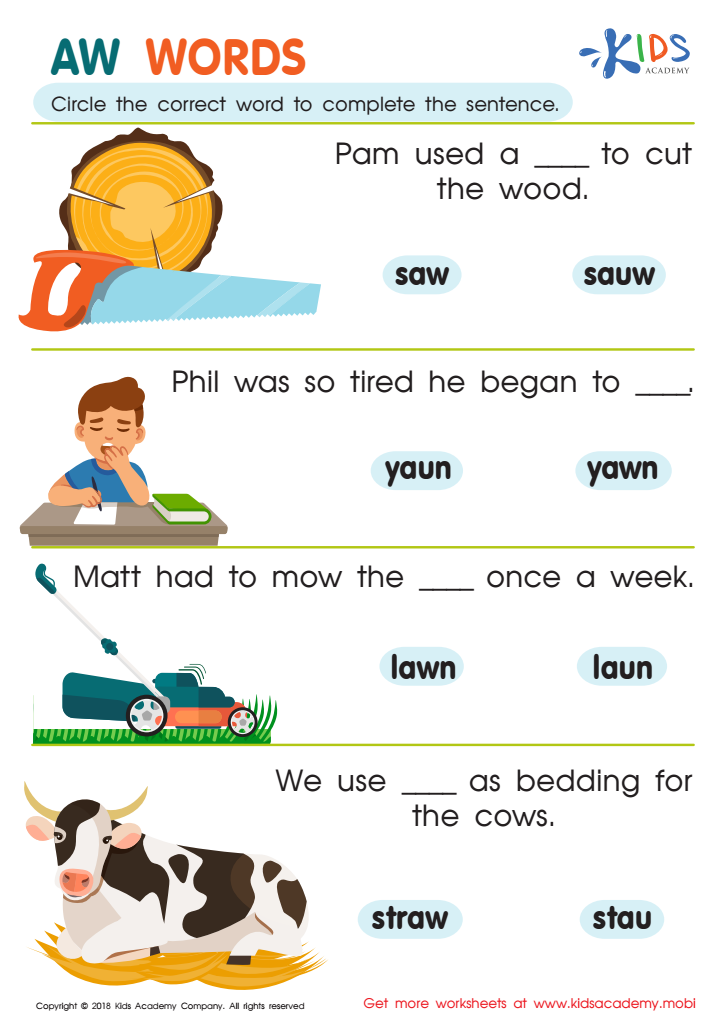

Reading: AW Words Worksheet


Long and Short Vowel Sentences: Assessment Worksheet
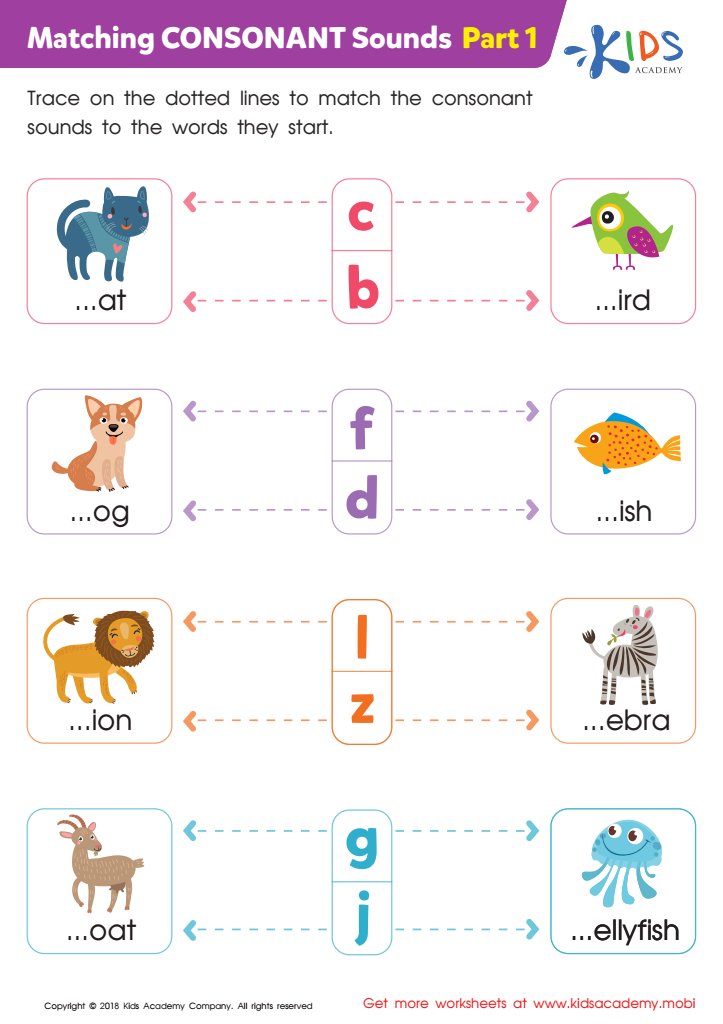

Matching Consonant Sounds: Part 1 Worksheet
Parents and teachers should prioritize phonics skills, particularly normal vowels and consonants, for children aged 6-9 because these foundational skills are essential for literacy development. At this age, children begin to move from learning to read towards reading to learn. Phonics serves as the bridge, helping them decode written words by understanding the relationship between letters and sounds.
Mastering vowels and consonants enhances vocabulary development and fluency. It enables kids to break down unfamiliar words into manageable parts, boosting their confidence and independence as readers. Fluency in reading directly impacts comprehension; when children can easily sound out words, they can focus on grasping the meaning of what they are reading, which is key for overall academic success.
Moreover, phonics instruction during these formative years helps prevent reading difficulties. Studies show that children with strong phonics skills are less likely to struggle with literacy as they advance through school. Lastly, cultivating a love for reading during this stage can instill a lifelong appreciation for literature and learning. Therefore, by supporting phonics skills, parents and teachers are planting the seeds for their children's future educational achievements and fostering greater engagement with literacy.
 Assign to My Students
Assign to My Students








